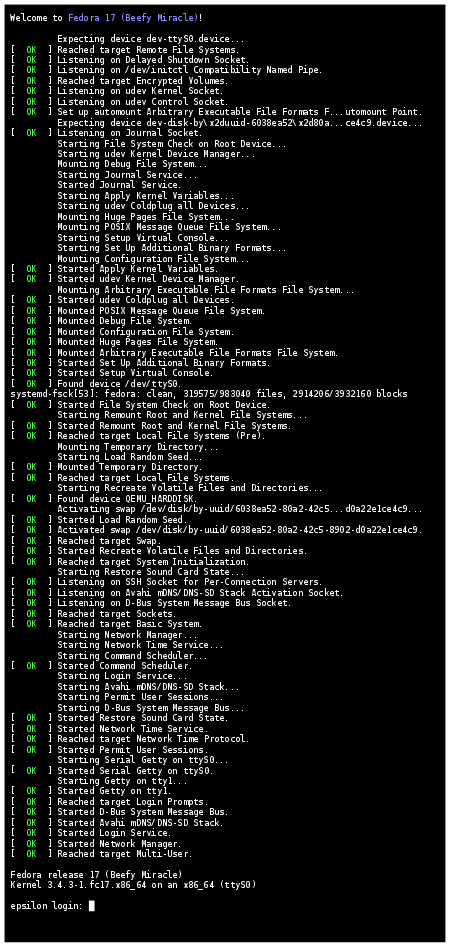
In the world of Linux, few debates have stirred as much controversy as the battle between the traditional System V init system, often known as SysVinit, and the newer systemd.
In this article, I'll briefly discuss what systemd is, what advantages and disadvantages it has over the traditional init systems and why it is controversial.
What is systemd?
systemd is a system and service manager, first introduced in 2010 to replace the traditional System V init system. It was designed to improve boot-up speeds and manage system services more efficiently. Today, systemd is the default init system for many popular Linux distributions, including Ubuntu, Fedora, and Red Hat Enterprise Linux.
Is systemd a Daemon?
Despite the name, systemd is not a daemon. Instead, it's a software suite that provides a number of system components for Linux. Its goal: to standardize service configuration and behavior across Linux distributions.
The main component of systemd is a "system and service manager", which serves as an init system to bootstrap user space and manage user processes. It also offers replacements for various daemons and utilities, from device and login management to network connection management and event logging.
Key Features of systemd
systemd has many features, such as its ability to aggressively parallelize operations, facilitate the on-demand launching of daemons, monitor processes using Linux control groups, manage mount and automount points, and implement a sophisticated transactional dependency-based service control logic.
Additionally, systemd supports SysV and LSB init scripts, serving as a substitute for SysVinit. It also offers a logging daemon and utilities for managing essential system configurations.

systemd Vs SysVinit: The Controversy
The heart of the init vs systemd debate revolves around how best to manage Linux-based systems. Concerns range from complexity and compatibility to the optimal way to manage system services, touching on foundational questions facing system administrators and Linux enthusiasts.
Critics argue that systemd is too complex and monolithic, making it harder to troubleshoot. They worry about a single point of failure, as all services are managed by one daemon, and voice concerns about tight integration with the Linux kernel, which could limit portability to other systems.
That's the reason why some people created distributions free from systemd.
Proponents, however, praise systemd for providing a more efficient and modern approach to system management, with its parallelization of service startup and on-demand starting of daemons reducing boot times and improving system responsiveness. They also commend its advanced logging capabilities.
Despite the controversy, systemd has become the default init system for many Linux distributions, and system administrators and developers have come to appreciate its advanced features and capabilities.
Positives and Negatives of systemd Vs SysVinit
Positives
| Positives of SysVinit | Positives of systemd |
|---|---|
| Simplicity and familiarity | Improved boot-up speed |
| Respect for Unix philosophy | Standardized logging system |
| More direct control over system services | Consistent approach to service management |
| Mature and stable system | Compatibility with modern Linux systems and applications |
| Compatibility with legacy systems and applications | Active development and support from a large community of developers and contributors |
Negatives
| Negatives of SysVinit | Negatives of systemd |
|---|---|
Limited functionality compared to newer init systems | Complexity and steep learning curve |
| Lack of built-in support for parallel startup of services | Invasive nature and potential for breaking compatibility with traditional Unix tools and utilities |
Can be less efficient than newer init systems, especially on large systems | Potential for instability and crashes on some systems |
| Limited support for modern Linux systems and applications | Limited compatibility with legacy systems and applications that have not been updated to work with systemd |
Conclusion: A Personal Perspective
As a Linux user hailing from the older days of UNIX, my preference leans toward the traditional init system. However, I've come to accept systemd, seeing some of its benefits despite my initial resistance. Each system has its own place in the Linux world, and it's important to understand both.
The systemd debate continues. What is your take on it?
It's FOSS turns 13! 13 years of helping people use Linux ❤️
And we need your help to go on for 13 more years. Support us with a Plus membership and enjoy an ad-free reading experience and get a Linux eBook for free.
To celebrate 13 years of It's FOSS, we have a lifetime membership option with reduced pricing of just $76. This is valid until 25th June only.
If you ever wanted to appreciate our work with Plus membership but didn't like the recurring subscription, this is your chance 😃

